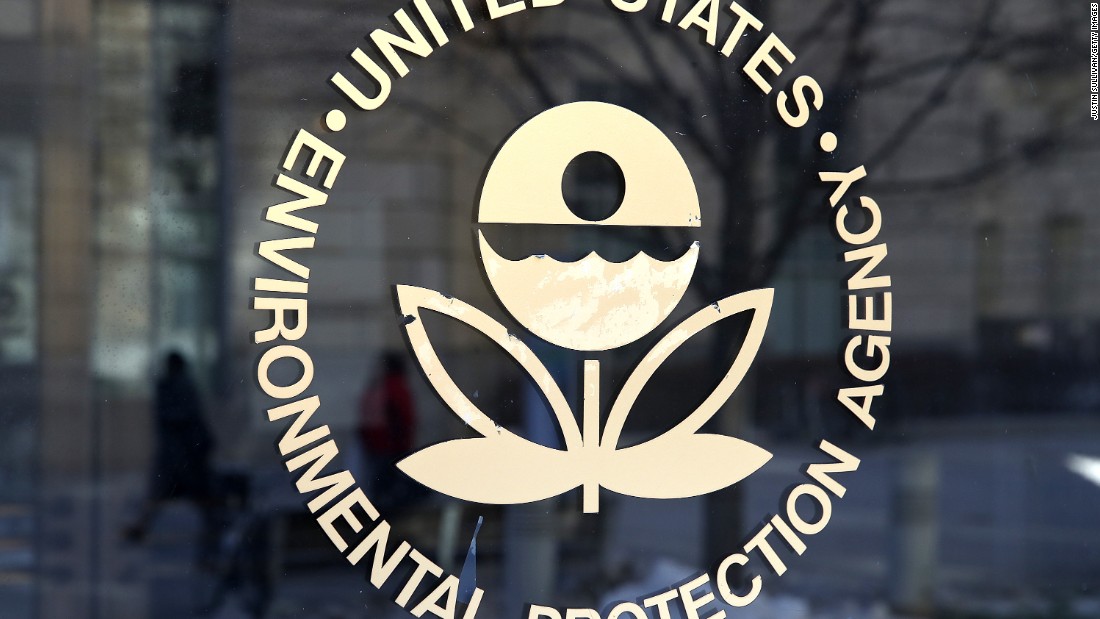
Sen. Sheldon Whitehouse, D-Rhode Island, is raising concerns about the EPA's assistant administrator for the Office of Air and Radiation, Bill Wehrum, who before joining the agency worked as an attorney representing the oil, gas and coal industries. He was confirmed by the Senate in November 2017 and oversees the EPA office responsible for developing policies and regulations for controlling pollution and radiation.
Trump's ethics pledge says appointees must abstain for two years from participating in "any particular matter involving specific parties that is directly and substantially related to my former employer or former clients, including regulations and contracts."
The ethics pledge points out appointees cannot meet with or communicate with former clients or employers unless it's a discussion about a general issue and unless at least four others who are not former employers or clients are present. Wehrum's former clients include companies including ExxonMobil, Koch Industries, Chevron, American Petroleum Institute, Duke Energy and many others.
CNN reviewed Wehrum's calendars, obtained by Whitehouse's office, that show Wehrum had several scheduled meetings with his former employer and clients.
Meetings include a December 7, 2017 speaking engagement where Wehrum spoke at the offices of his former employer, Hunton & Williams, to several energy companies including Duke Energy, Dominion Energy, a subsidiary of Dominion Resources Services, Inc., and the Utility Air Regulatory Group a trade association representing electric utilities. The group and all three companies are listed on Wehrum's recusal letter as former clients.
"This would qualify as a meeting with four former employers or clients and only two parties that are not former employers or clients and therefore would be prohibited under your ethics pledge," Whitehouse wrote.
EPA spokesman James Hewitt told CNN "the meeting included former clients but many other interested parties were present and that follows EPA rules."
Wehrum's calendar also shows meetings on January 23 and 26 of this year with General Electric, which he also lists as a former client. The EPA tells CNN it is still gathering information on the January 23 meeting but says the January 26 meeting was between Wehrum and two of his former clients at GE was purely social. "It was a social meeting over coffee and no EPA business was discussed," Hewitt said.
The ethics guidance prohibits one-on-one meetings with former clients and employers.
On February 12 and 16, Wehrum's calendar notes a meeting with former clients including Duke Energy, UARG and AEP. The meeting appears to have been delegated to Mandy Gunasekara, principal deputy assistant administrator at EPA's Office of Air and Radiation. The calendar entry also lists Wehrum as an attendee and the organizer. Hewitt says despite the calendar entry, Wehrum was not at either of the February meetings.
The Office of Government Ethics told Whitehouse last month it was aware of the allegation Wehrum may have violated the Trump ethics pledge, but says it "has no authority to either administer or enforce potential violations of the pledge at other agencies."
OGE's guidelines allow for appointees to meet with former clients if they satisfy several requirements, such as including multiple other individuals or organizations in the meeting.
Whitehouse says he repeatedly asked for five months that Wehrum detail his recusal obligations once he joined EPA. The request went unanswered for months.
Whitehouse's letter to EPA Administrator Andrew Wheeler details a letter the senator's office received from former EPA ethics counsel Kevin Minoli. According to the letter, Minoli said that despite repeated counsel from the ethics office, Wehrum refused to sign the recusal letter. Minoli's letter stated Wehrum "chose to use other tools he deemed effective in helping him comply with the ethics requirements."
In an interview with the New York Times this August, Wehrum told the paper he was "scrupulously complying with my ethical obligations." He said he signed the Trump ethics pledge to show his commitment. In that interview, Wehrum acknowledged that the line between right and wrong was not always clear. For example, he said he had repeatedly sought a definition of what represents a "particular matter involving specific parties," which he would be banned from participating in as a result of the ethics pledge.
Citing this lack of clarity, Wehrum refused to sign a "recusal letter" detailing individual clients and potential conflict of interest.
"I have gotten three different interpretations, and what I don't want to do is sign a recusal letter and then have the rules change again," he told the Times.
Facing mounting pressure, Wehrum provided the signed letter this September, outlining former clients he is prohibited from meeting.
Whitehouse is urging the President to put procedures in place to guarantee executive branch appointees do not violate his ethics pledge and consider punishment for those who do violate the pledge.
The Office of Government Ethics says it continues to work with the EPA to improve the overall effectiveness of its ethics program as a result of its 2017 review of the EPA's program.
No comments:
Post a Comment